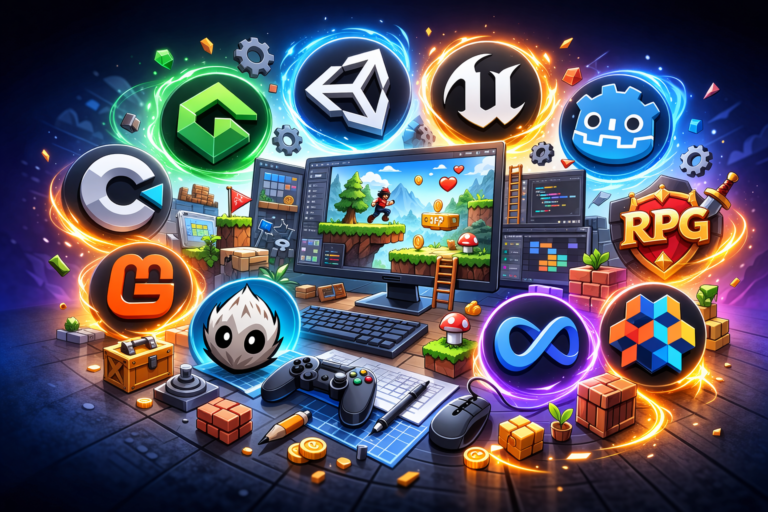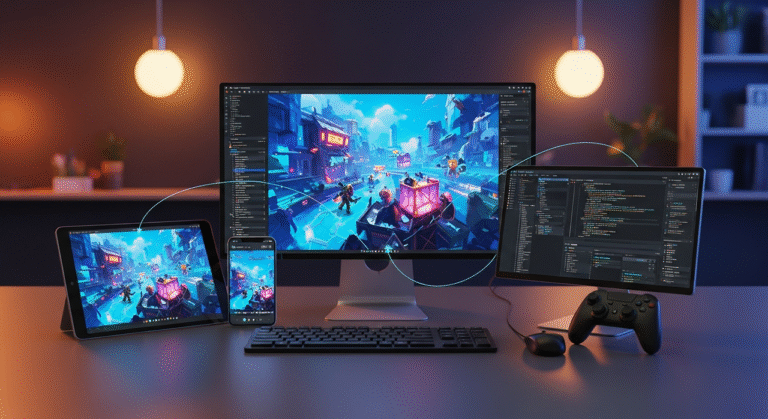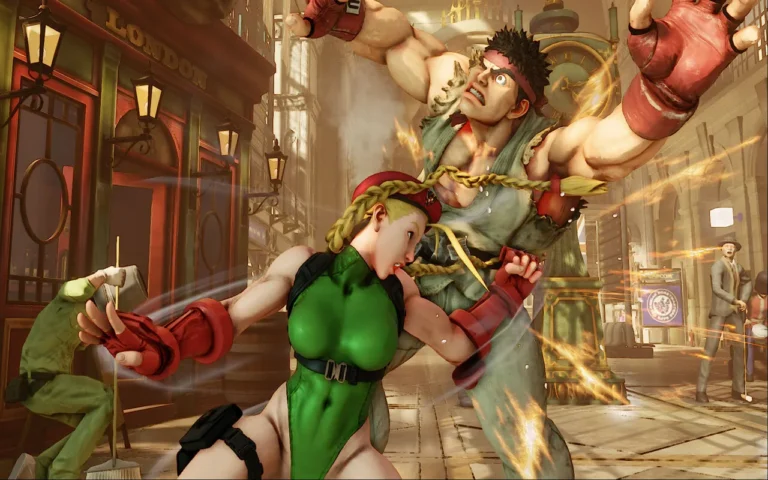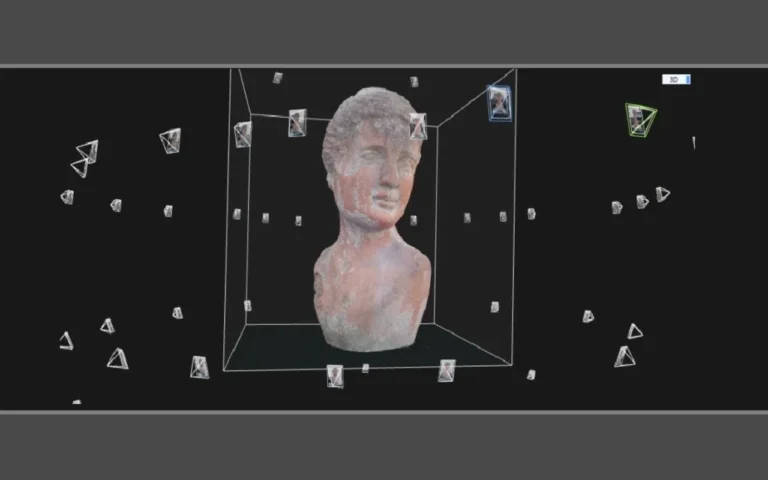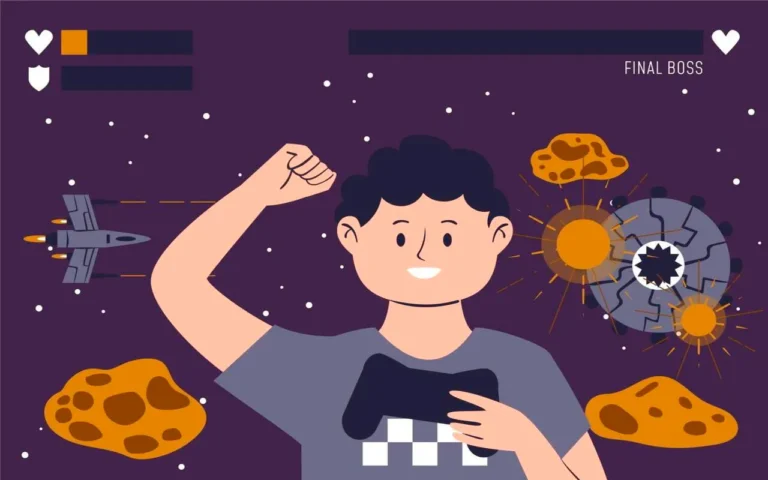When creators search for the best way to “sell a game idea,” they are typically looking for a game art studio or a publisher partnership, financial backing, or a talented team.
The blunt reality is that the industry does not purchase “ideas” in a vacuum; it invests in the ability to execute, verifiable proof, and a solid commercial framework. A publisher isn’t scouting for imagination alone; they want a project that can be completed, promoted, and monetized while keeping risks under control.
In this article, we will discuss the five principles that illustrate how professional decisions are made and why many developers fail to get a foot in the door.
What Does “Selling a Game Idea” Actually Mean in the Industry?
In this business, “selling” is rarely a transaction where you trade a concept for cash and walk away. Usually, you are presenting a comprehensive proposal: a roadmap, a capable team, a prototype, and a strategy for success.
A game publisher typically provides the capital for development, handles marketing and PR, manages QA and localization, and leverages platform partnerships, recovering their costs and sharing profits later.
Investors, meanwhile, look for equity in a studio. Potential teammates need to see that the project is viable and the leadership is skilled. Ultimately, the goal is to prove you can transform a vision into a product with a reliable game design pipeline.
You aren’t just selling a “concept.” You are selling the certainty that you can deliver.
1st Commandment: Why Do Ideas Mean Almost Nothing on Their Own?
Concepts are common and easy to create, but they are incredibly difficult to validate. Decision-makers see countless pitches that sound great but fall apart when faced with technical constraints, poor scope management, or a lack of market demand.
A raw concept offers no proof of fun or evidence that the team can reach the finish line. This is why companies like Zynga and EA Help maintain a strict unsolicited submissions policy; it protects them from legal disputes and operational clutter.
What makes an idea “real” instead of “just a concept”?
An idea gains professional weight when it is supported by:
- A specific target player base and hardware platform
- A functional core gameplay loop and a plan for player retention
- A practical budget and a realistic approach to scope management
- Tangible evidence: a prototype, recorded gameplay, or a vertical slice
When ideas have no intrinsic market value, your ability to execute becomes your true currency.
2nd Commandment: How Does Execution Outrank Originality Every Time?
A standard concept handled with high skill will always beat a groundbreaking concept handled poorly. High-level execution demonstrates that a team can navigate obstacles, maintain a steady production pipeline, and meet milestones.
The best game publishers always check for design logic, artistic consistency, and technical stability. Showing strong execution also proves you know how to make tough calls, like trimming features to ensure the project stays on track.
What “execution” looks like in a strong pitch
You demonstrate execution capability when your pitch deck shows:
- A polished core gameplay loop (rather than a massive list of features)
- Video of the game in motion that conveys the “feel” and mechanical clarity
- Production honesty regarding the schedule, team roles, and milestones
- A cohesive visual style that suggests a finished aesthetic
Execution is vital, but it only matters if you can communicate it effectively and quickly.
Let’s analyze Homescapes, for instance. With a half-developed addition of a storyline, they have made it a hypercasual title with +100 million downloads.
Also, they added some bonus mechanisms like home (base) building and a tiny pinch of resource management, but we can see how the same old idea of a match-3 game can be so powerful with good execution.
3rd Commandment: How Do You Deliver a Pitch So It Lands in 60 Seconds?
Great delivery is the art of explaining your game’s value with speed and precision. Publishing a game will have you constantly asking: “Do I understand this? Is there a market? Can they build it?”
If your explanation takes ten minutes to make sense, you’ve already lost your audience. A professional pitch is structured, visual, and focused.
The 60-second pitch formula (simple, professional, effective)
- Category + camera view + target hardware
- The primary action the player repeats (core gameplay loop)
- The “hook” or the specific factor that sets it apart
- Evidence of progress, such as a prototype or early traction
What to avoid in pitch delivery
Stay away from empty buzzwords like “revolutionary” or “game-changing.”
Instead, use descriptive, observable facts: “Players engage in 5-minute tactical rounds, collect upgrades, and compete for high scores.” This approach makes your proposal feel grounded and professional.
4th Commandment: Why Do You Need a Tangible Demo or You’ll Likely Fail?
Most pitches are ignored because they offer promises instead of proof. A playable demo transforms concept art into a reality, showing off the pacing and design maturity of the project. This is the primary tool used to evaluate risk and readiness for future milestones.
Prototype vs. Demo vs. Vertical Slice
- Prototype: A rough build used to prove the mechanics actually work.
- Playable demo: A refined experience designed to show off the fun factor.
- Vertical slice: A high-quality segment that shows the final intended quality of the art, sound, and systems.
The vertical slice is particularly powerful for organizations like Xsolla or initiatives like Levelling The Playing Field, as it proves the team can synchronize different disciplines into a polished product.
What a strong “first proof package” includes
To get a serious look from a game publisher, prepare:
- A concise gameplay trailer (30–90 seconds of pure action)
- A functional build or a high-quality video walkthrough
- A one-page pitch/pitch one-pager summarizing the “who, what, and why.”
- A basic roadmap covering the team, timeline, and milestones
5th Commandment: When Should You Use an NDA and When Does It Hurt You?
Novice developers often demand an NDA (Non-Disclosure Agreement) too early, which can be a major red flag. Most major players, including Zynga and EA Help, will not sign an NDA (Non-Disclosure Agreement) just to look at a standard pitch deck.
They do this to avoid legal liability and because their unsolicited submissions policy already dictates how they handle external ideas.
When an NDA is appropriate
An NDA (Non-Disclosure Agreement) is generally reserved for when you share:
- Unique, proprietary technology or custom software tools
- Sensitive financial data or existing contract details
- Internal builds that contain unannounced or highly sensitive content
What protects you better than an NDA
The best way to protect your work is through:
- Clear documentation of your development (dated files and version history)
- Building a public presence and an established brand
- Speed of execution and being the first to market is the best defense
Final Words
If your goal is to “sell” your concept, treat it as a professional business proposal. In this industry, ideas aren’t bought; evidence is funded.
Build your pitch deck around clarity, provide a vertical slice or prototype as proof, and show that you understand the realities of the production pipeline. When you prioritize execution over secrets, you stop being a dreamer and start being a partner worth the investment.
Be Professionally Prepared with Pixune Studios
No one can help you better than a award-winning studio with experts who are ready to help you with your game ideas.
No matter what kind of game art services or 3D animation services you are after, we provide best outsourcing services you can get. Contact us and we will get back to you in a trice.
Let us be your gateway to the success and help you with the first steps in the path of greatness in such a competitive industry.
